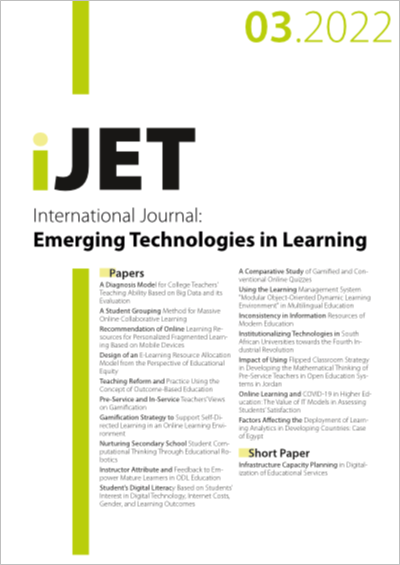Infrastructure Capacity Planning in Digitalization of Educational Services
DOI:
https://doi.org/10.3991/ijet.v17i03.27811Keywords:
IT infrastructure, capacity planning, virtualization, digitalization, educational servicesAbstract
Capacity planning of the infrastructure is a difficult task performed during the virtualization of the IT infrastructure. It is the planning of the necessary hardware to which the existing systems will be transferred, and later the future systems that will work in a virtualized environment. Infrastructure capacity planning in digitalization of educational services is a process in which the IT infrastructure is needed to meet not only the current workload but also the future workload and to follow further requirements. In case the process of planning is well performed, it could more fully support the development of emerging technologies in learning. The traditional IT infrastructure, bound by the physical limitations of the devices, does not meet the requirements for flexible changes, for quick recovery after a problem. This leads to difficult management, to weaknesses in the implementation of educational processes. Virtualization could solve most of these problems for modern IT infrastructures. It provides highly efficient and reliable operation of operating systems and applications that do not depend on the computer system.
Downloads
Published
2022-02-18
How to Cite
Petrov, P., Radev, M., Dimitrov, G., & Simeonidis, D. (2022). Infrastructure Capacity Planning in Digitalization of Educational Services. International Journal of Emerging Technologies in Learning (iJET), 17(03), pp. 299–306. https://doi.org/10.3991/ijet.v17i03.27811
Issue
Section
Short Papers
License
Copyright (c) 2022 Pavel Petrov, Mihail Radev, Georgi Dimitrov, Dimitrios Simeonidis

This work is licensed under a Creative Commons Attribution 4.0 International License.



